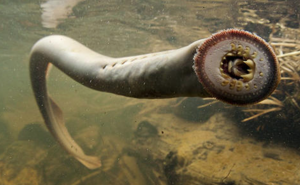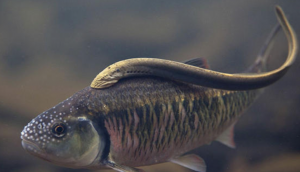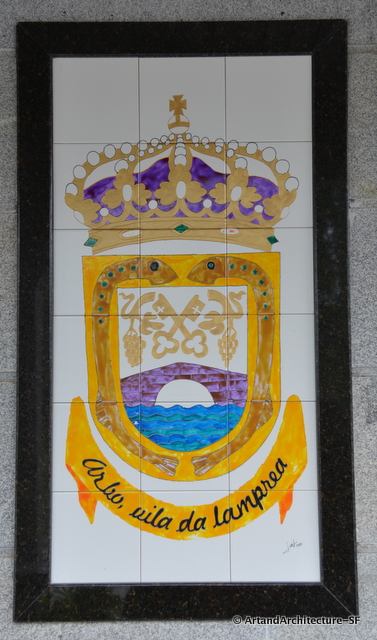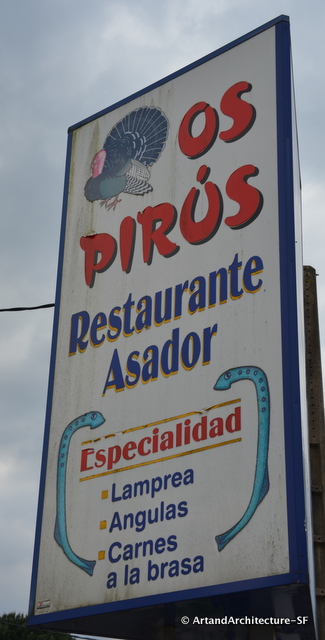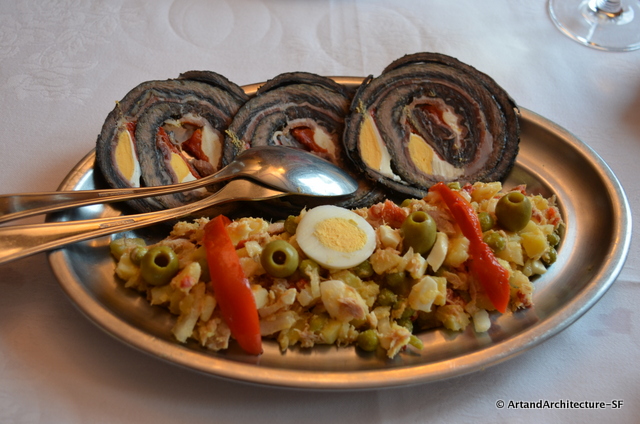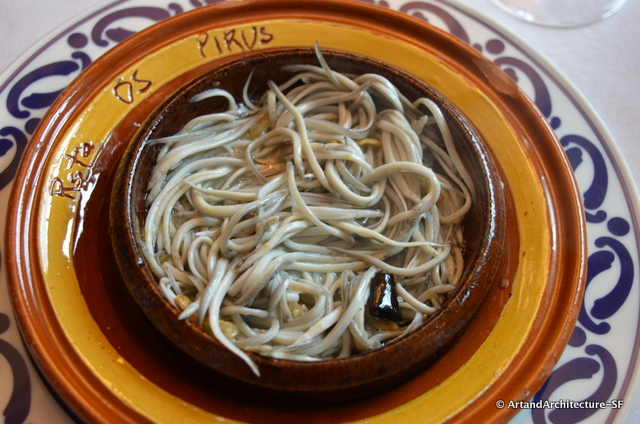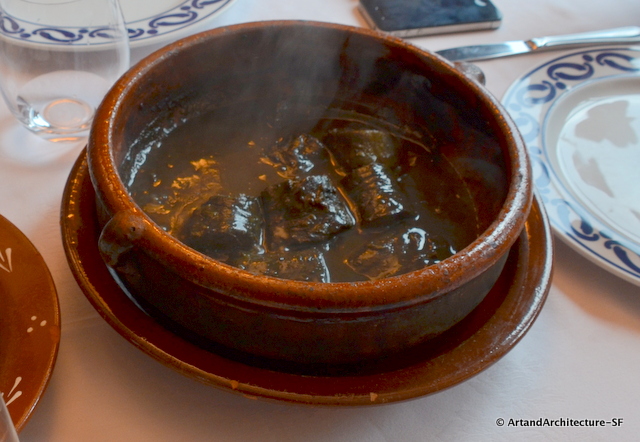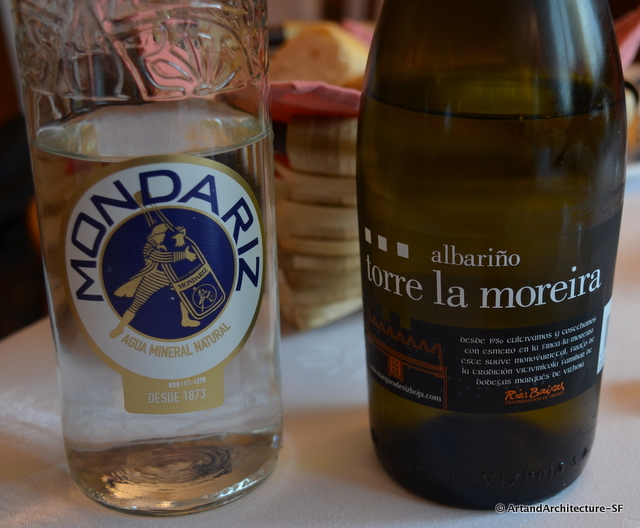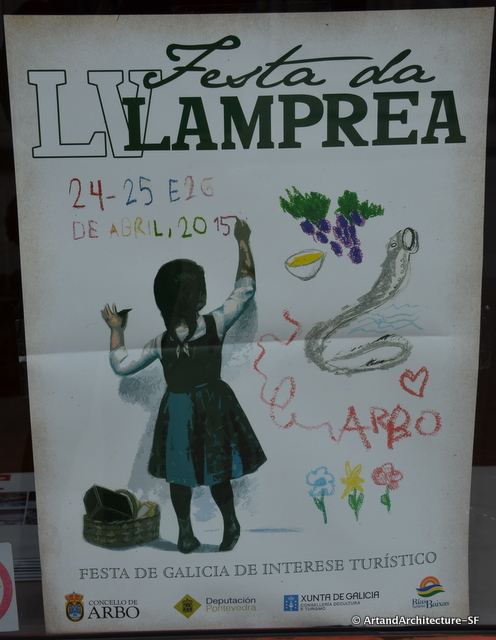 It is Lamprey season in Galicia Spain. If you are a queasy about cuisine, I suggest you stop reading right here and right now and move on to the next post.
It is Lamprey season in Galicia Spain. If you are a queasy about cuisine, I suggest you stop reading right here and right now and move on to the next post.
The lamprey’s actual genealogy is of some question, but basically it is a jawless creature that affixes itself to a fish or other aquatic animals using suckers and the extremely sharp teeth around its mouth…and then sucks their blood.
In Spain the lamprey can only be found in the lower portions of the Rio Guadiana in Extremadura and in the Rio Miño in Galicia. They are caught between January and April and there are large celebratory festivals in most of the towns during this special time.
It is important to buy the lamprey fresh thus ensuring a dark, fatty and slightly sweet flesh that many diners prefer.
I was taken to my lamprey dining experience by Clemente Sequeiros owner of the Angel Sequeiros Winery in Pontevedra. We dined as Os Pirus in Arbo.
Clemente explained that there are several ways to prepare lamprey. He also understood that it is not for everyone, so did not order the entire lamprey as is often done.
We began with a delightful introduction of smoked lamprey with red pepper, ham and egg. Essentially the lamprey is soaked in salt, much like Bacalao, then soaked in water to remove much of the salt, smoked, and then rolled with the three ingredients. I found it to taste like any other smoked fish, quite palatable and set off magnificently with the potato-tuna-egg salad that was served as an accompaniment.
Our second dish was another delicacy of the season, and the area, Angulas. Google translated the word as Elvers, which I later learned is what the English call them, we would simply call them small eels. These small animals enter the Miño River from the Atlantic Ocean at the same time as the lamprey. They are probably Spain’s most expensive dish, last season they were running around 140 Euros per gram, but the price has dropped to about 60 this year. They are cooked with pan fried garlic and one whole cayenne pepper then served in a small earthenware dish, with a wooden fork, the only way to keep them on a fork and get them to your mouth.
I was in absolute heaven, I honestly thought they were DELICIOUS. Clemente commented it was a good thing that I wasn’t going to be around for the entire season as my wallet couldn’t handle it.
Our third dish was a more traditional way to eat lamprey.
This, the more traditional way, is to either boil or braise the lamprey in its own blood, often with a local red wine. This is then served over a bed of very plump, very white rice. I found the dish to be delightful. It is so very, very rich and dense that 2 of those pieces was all that I could possibly consume. I tried to do more, but the density of the lamprey fills you up almost instantly. There are no bones in lampreys, like sharks they are an animal of simply meat and cartilage, so they are easy to eat.
We enjoyed the entire meal with a bottle of Albarino, not Clemente’s sadly, but a lovely one none-the-less.
It was a truly fun afternoon, and while not one for the feint of heart, one that I was glad to have had the chance to experience.
